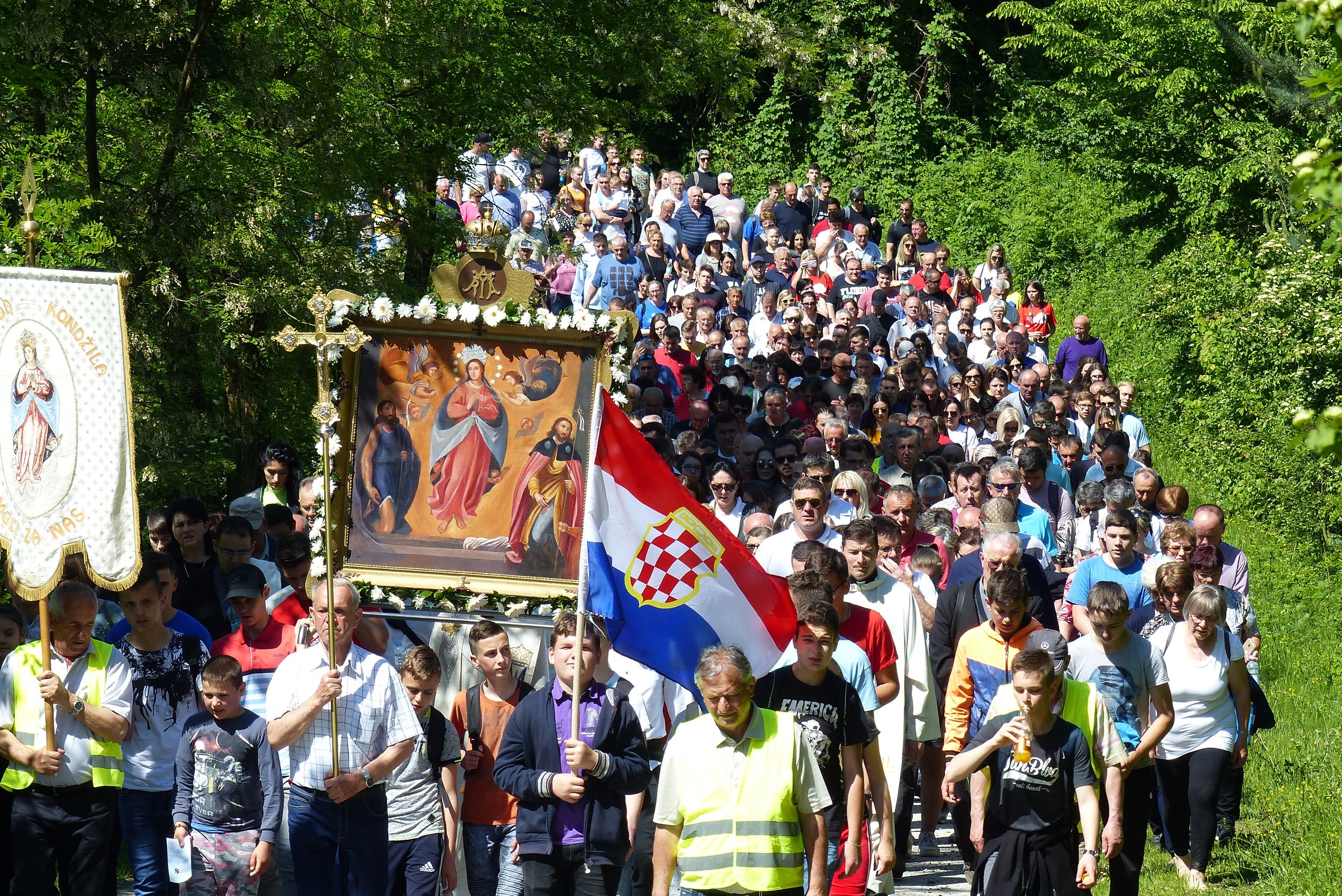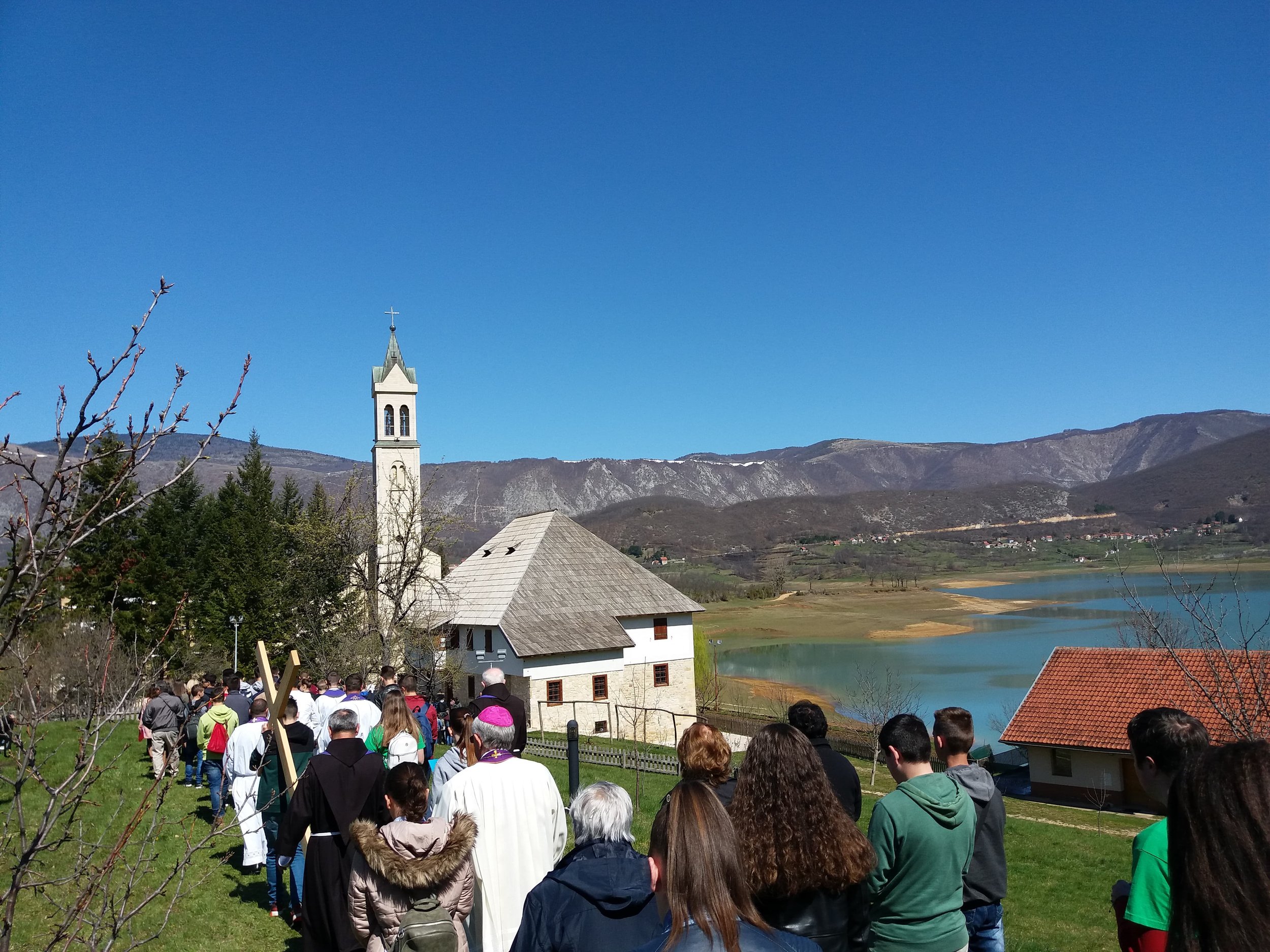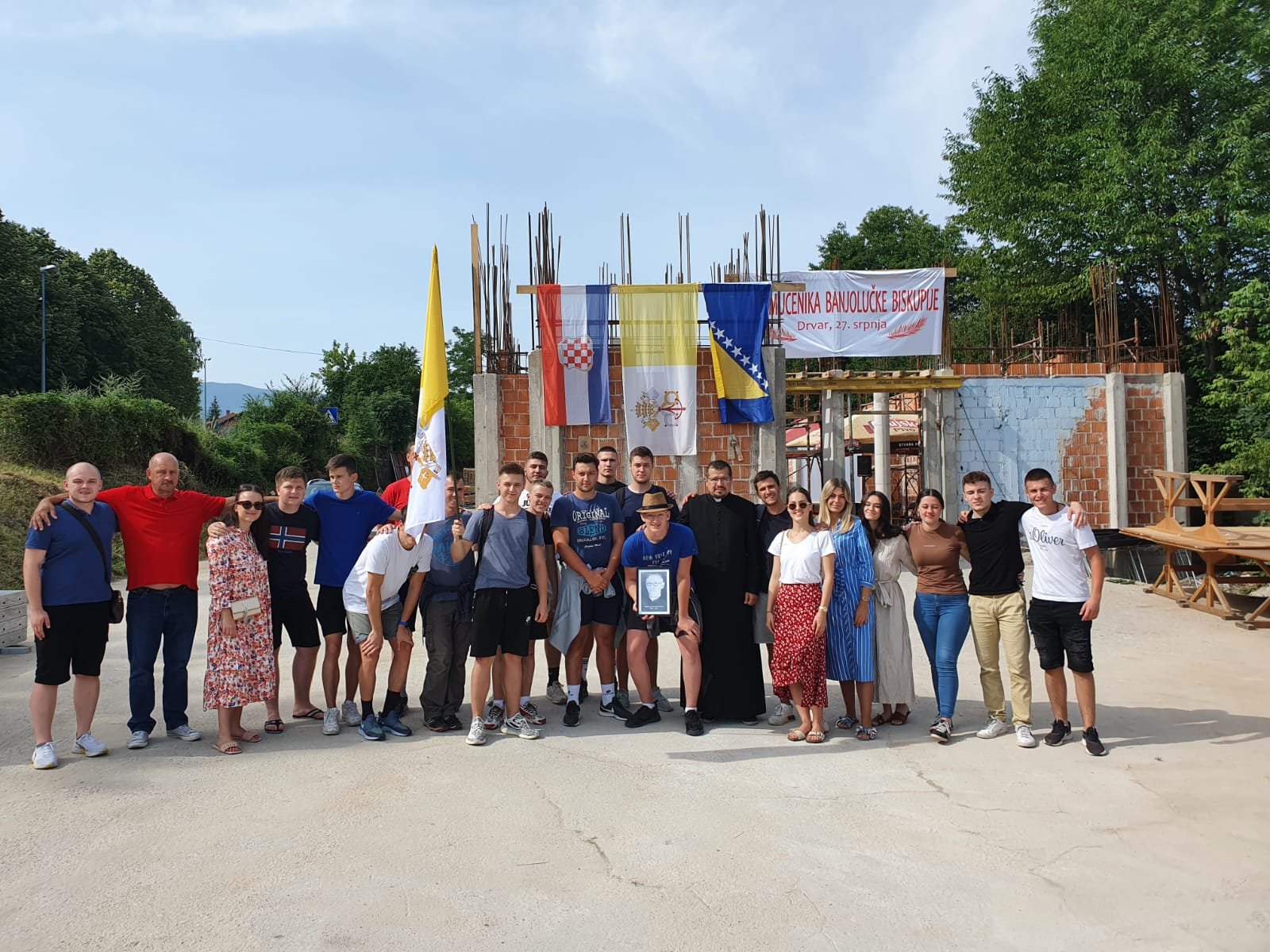Catholics Facing Discrimination in Bosnia and Herzegovina
Catholics in Bosnia and Herzegovina, who are mostly Croatian, are facing great difficulties and discrimination. Volker Niggewöhner interviewed Bishop Franjo Komarica of the Diocese of Banja Luka in Bosnia and Herzegovina for ACN about the difficulties facing Catholics in the county.
By ACN Staff
A Catholic procession in Bosnia and Herzegovina. (Credit: Aid to the Church in Need)
A quarter of a century after the Bosnian War, Bosnia and Herzegovina is still deeply divided. Catholics are a minority in the country at around 15% and face discrimination from many quarters. Bishop Franjo Komarica of the Diocese of Banja Luka in Bosnia and Herzegovina spoke to Volker Niggewöhner from Aid to the Church in Need (ACN) about the situation for Catholics in the Balkan country.
Bishop Franjo Komarica celebrating Holy Mass at ACN’s headquarters in Königstein, Germany. (Credit: Aid to the Church in Need)
Bishop Komarica explained the current setup in Bosnia and Herzegovina and the situation for the Catholics who are mostly Croats (the sections in brackets are the editor’s notes):
“Bosnia Herzegovina has had a provisional system since the war ended – and so everything remains at a standstill. The country has been de facto governed by an international representative who bears the title of High Representative. Even though the eighth officeholder since 1995 has taken office, the presence of the representative has not made the country a constitutional state. And the local politicians neither fulfil the necessary prerequisites nor have the power to transform Bosnia Herzegovina into a functioning constitutional state.
The state of Bosnia Herzegovina is made up of three constituent peoples (Serbs, Bosniaks and Croats) and two entities (Federation of Bosnia and Herzegovina and Republika Srpska). While Republika Srpska maintains strong ties with Russia, the Federation is strongly influenced by Turkey, or the Islamic world. And the third people, the Croats (who make up the majority of the Catholic share of the population), are going under. We are going to wrack and ruin, there is simply no place we can call home.”
Financial support for pastoral activities of the Archbishop's Youth Pastoral Center Ivan Pavao II in Sarajevo. (Credit: Aid to the Church in Need)
The bishop explained that Catholics face social, political, and economic discrimination. For example, many Catholics have Croatian names. It can be very hard for them to get jobs in parts of the country, as it is clear by their name that they are both Catholic and Croatian. Catholics can live without much issue in West Herzegovina, but even there Catholics are leaving.
The bishop explained that the Catholic exodus is a bad thing for Bosnia and Herzegovina as a whole. The Croatian Catholics, the bishop explains, are a sort of “adhesive” that holds the country somewhat together. They are a sort of bridge between the two major groups in the county: Bosnian Muslims and Orthodox Serbs. Without the Catholic Croats the country can be divided into two distinctive groups who will fragment and sperate from each other, which may cause future unrest.
Bishop Komarica explained that there is also difficulties for Catholic refugees who left the country during the 1990s in returning:
“Annex 7 of the Dayton Agreement, which was to oversee the return of all refugees and displaced persons, was never implemented. The agreement also stipulated that Bosnia Herzegovina and the international community of states were to provide political, legal and material support to those who returned. This did not happen in the case of the Croats. I held the documents in my hand that said “so and so many millions are allocated to the displaced Serbs, so and so much for the return of the Bosniaks.” This was followed by one sentence, “There is no such thing as the return of the Bosnian Croats.” Which means that we are not receiving anything from them.”
Renovation and extension of the pastoral center in the parish of St. Joseph in Drvar. Young Catholics in front of the construction site of a parish center in Drvar. (Credit: Aid to the Church in Need)
Bishop Komarica also explained how vital the support of ACN is to the Church in Bosnia and Herzegovina:
“If there is any Church in need in Europe, then it is ours. In my diocese of Banja Luka, 95 per cent of the church buildings were destroyed or severely damaged during the war. ACN did a great deal to help us rebuild. The organisation was involved in many other projects as well. However, it is also important that ACN understands our problems, listens to us and we can count on their understanding in the future. ‘God bless you’ to all benefactors who are investing in a matter of God! Aid to the Church in Need is not a matter of bishops and priests, not a matter of any one community, it is a matter of God.”
Bosnia and Herzegovina continues to be a priority country for ACN in south-eastern Europe. Our primary focus is on enabling the necessary renovations of churches, monasteries and convents as well as parish houses. We ensure the continuity of pastoral services by equipping priests with the vehicles they need to serve their extensive parishes. We provide regular funding also for the spiritual formation of seminarians and novices. In 2021 alone, we supported 48 projects, distributing nearly €740,000 in financial aid.




